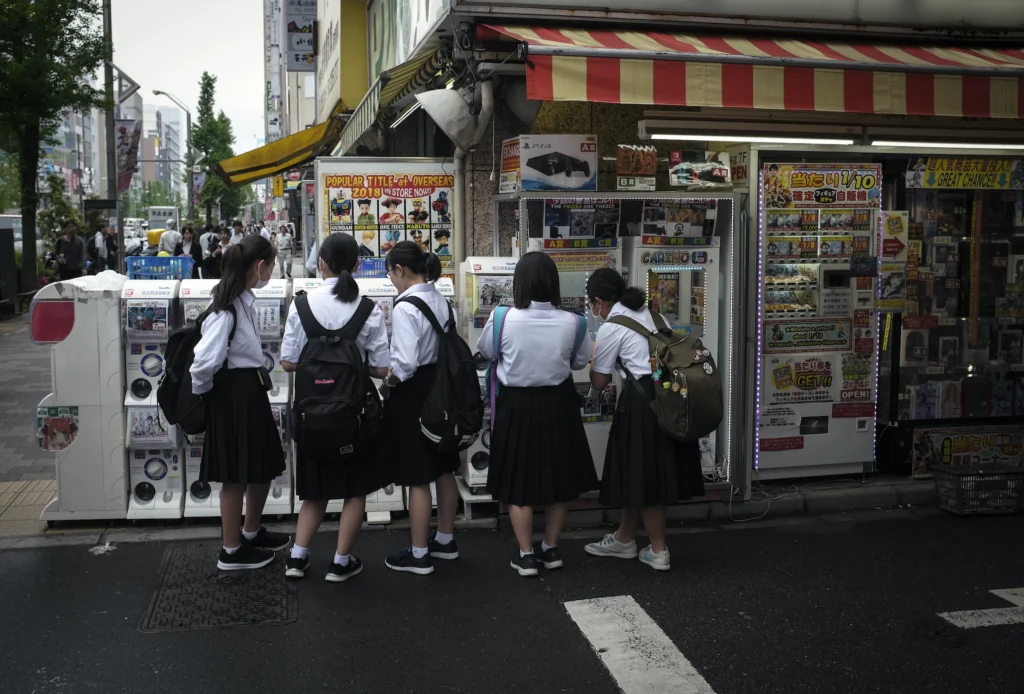Hensachi (Japanese: 偏差値) is a measurement that reveals the strict social standards within Japan’s education system. Hensachi, or in other words, deviation value, is a value that does not just represent one’s score but an approximate position in the entire student body. The calculation of such positions thus forms a hierarchy regarding school performance. More importantly, Japan, like other East Asian cultures, has proactively stressed the value of “ranking.” The meaning of deviation value (hensachi) has, by simply being a means of measuring school ranking, become comparable to one’s social status.
The notion of hensachi is closely related to the culture of shame within Japan. Shame occupies an important place in the moral system of East Asian civilization. In Confucian texts, shame links personal value and social perception. The assessment of others has become the primary motivation for forming a “Japanese personality.”
The knowledge of shame is the foundation of Japanese virtue. Under the influence of shame culture, Japanese people have a strong sense of group consciousness and conformity to collective standards, ideals which support the formation of Japanese society’s cultural and political identities.
On the one hand, the culture of shame promotes the importance of hard work and attaining a state of “perfection” through self-cultivation, as such a virtue would contribute to society’s development. But on the other hand, it emphasizes the importance of “knowing shame” as the basis of virtue and that individuals should not act outside the existing rules.
In some aspects, the development of the modern-day shame culture is closely related to the prevalence of hensachi. Beyond academics, more factors, such as appearance, personality, and job employment, are analyzed for deviance. After research, I found three parts that intertwined with the uniqueness of such culture in three components of Japanese society —1) Political Factions, 2) Corporate Culture, and 3) Family Values.
- Political Factions
The formation of factional politics in Japan is inextricably linked to the traditional
social and cultural relationship of dominance and subordination. Political factions, in other perspectives, are more like conventional social structures and organizational forms. The faction still follows the traditional family principle of familial kinship. After the Meiji Restoration, the high level of economic modernization remained the core of society and culture.
For example, in the Liberal Democratic Party in Japan, there are many factions with a dominant leader at the core of politics within each faction. The most dominant faction, in turn, influences the party’s policies and emphasizes the leader rather than the party’s ideology. Under such a system, many follow the leader, thus tying back to the idea of hensachi, a signifier of unification without space for deviance from mass belief.
- Corporate Culture
In the 19th century, the power of corporations was concentrated in a single person, and most companies employed relatives as their foremost directors. Thus, most enterprises started as family businesses. The business operates in many areas, employs many people, and accounts for a significant portion of the gross national product. An example of such an enterprise is Mitsubishi, which expanded from a small group of people to a huge corporation.
Japanese businesses believe that the traditional culture of morality and order provides the ideological basis for all activities. In addition, companies are often viewed as an extension of the family and emphasize the need to create a family atmosphere of harmony within the company, transforming the employment relationship into a form of “kinship.”
This type of kinship has led many people in Japan to believe that employees are a part of the company and should be loyal and willing to devote themselves to it. Managers should not only guide their employees but also pay attention to their lives and give them a sense of belonging and security. Employees tend to have a simple collective mindset and subordinate individual interests to the collective will.
As a result, Japanese entrepreneurs see business not only as an economic entity to gain profits but also as a place to satisfy a wide range of employee needs to connect them within one unit. Japanese companies’ continuous and rapid development is closely related to employees’ loyalty to the company. In addition, Japanese companies also regard public welfare and national benefit as their responsibility and consider the pursuit of social responsibility a priority. In this sense, Japanese corporate culture has also played a positive role in promoting the construction of the rule of law and morality in Japanese society.
- Family Values
Last but not least, the family values in society build the foundation of the idea of hensachi and subsequent political and cultural values. Families are considered well-disciplined and promote internal collaboration, suggesting that everyone has a role in the family. Moreover, traditional family values are the first stage to start the cycle of finding the “right” position in society, contributing to the culture of shame when failing to achieve one’s pre-proposed role.
For instance, the Japanese culture has introduced a family culture into the businesses, viewing them as homes where the proprietor must consider keeping and expanding the “family” business.
The modern state of the nation itself shapes the Japanese family system. The formation of the family involves two overarching influences. First, with the capital/industrial system as the main body, the state worked to establish a set of family systems that could supply sufficient labor for the industry to meet the needs of national industrialization. Second, with the state as apparatus, Japan established a “family-mediated” management system that exercised direct domination over individuals, eliminating individual differences from the fundamental units in society.
“Hensachi,” a unique word that only exists in the Japanese language, speaks to the volume of collectivism and the concerns of social harmony within Japan. The three parts of society that were being analyzed: 1) Political Factions, 2) Corporate Culture, and 3) Family Values all tie in with the idea of avoiding being deviant, revealing a bottom-up social value system that promotes harmony and prosperity within Japan. It is interesting to note how cultural identities define a nation’s political, economic, and individual characteristics.
However, as globalization grows, we are witnessing a new trend within Japanese society: groups of individuals seek ways to express themselves differently. These expressions are considered bold and against strict societal norms and unspoken rules. Moreover, as the declining birth rate and high suicide rate raise consciousness, people are seeking ways to interpret their lives in new ways.






